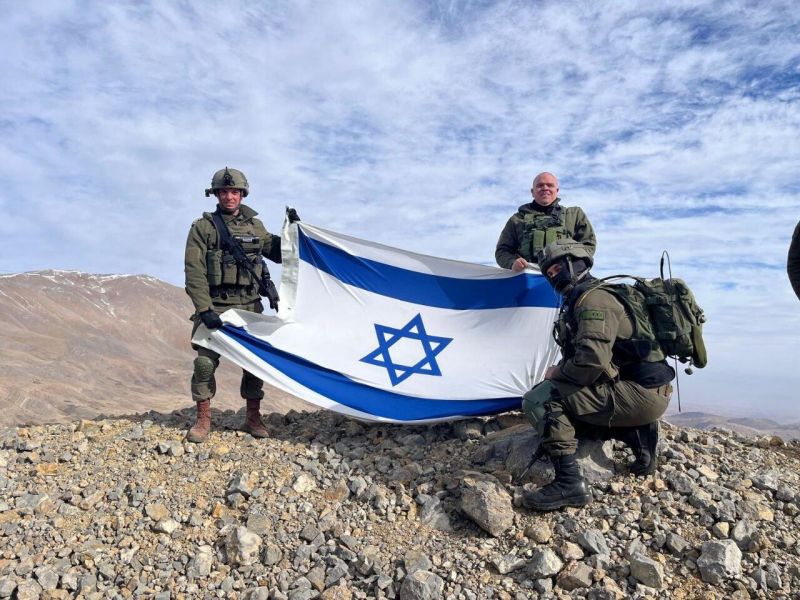
Why Israel captured Syria’s tallest mountain just hours after Assad fell
Israel wasted no time after Bashar al-Assad’s fall to bomb all the Syrian military assets it wanted to keep out of the rebels’ hands – striking nearly 500 targets, destroying the navy, and taking out, it claims, 90% of Syria’s known surface-to-air missiles.
But it is Israel’s capture of Syria’s highest peak, the Mount Hermon summit, that may prove among the most lasting prizes – though officials have insisted that its occupation is temporary.
“This is the highest place in the region, looking upon Lebanon, upon Syria, Israel,” said Efraim Inbar, director of the Jerusalem Institute for Strategy and Security (JISS). “It’s strategically extremely important. There is no substitute for mountains.”
The summit of Mount Hermon lies in Syria, in a buffer zone that separated Israeli and Syrian forces for fifty years until last weekend, when Israeli troops took control of it. Until Sunday, the summit was demilitarized and patrolled by UN peacekeepers – their highest permanent position in the world.
Israel’s defense minister, Israel Katz, on Friday ordered the military to prepare for the harsh conditions of winter deployment. “Due to developments in Syria, it is of immense security importance to maintain our control over the summit of Mount Hermon,” he said in a statement.
Israel captured the Golan Heights, a strategic plateau in southwestern Syria that abuts Mount Hermon, in the 1967 war and has occupied it since. Syria attempted to retake the territory in a surprise attack in 1973, but failed, and Israel annexed it in 1981. The occupation is illegal under international law, but the United States recognized Israel’s claim on the Golan during the Trump administration.
Israel has for decades held some lower slopes of Mount Hermon, and even operates a ski resort there, but the peak remained in Syria proper.
“We have no intention to intervene in Syria’s internal affairs,” Prime Minister Benjamin Netanyahu said in a video days after Israel bombed hundreds of Syrian targets and seized the demilitarized buffer zone. “But we certainly intend to do everything necessary to take care of our security.”
Mount Hermon’s summit is a tremendous asset under Israel’s control. At 9,232 feet (2,814 meters), it is higher than any point in Syria or Israel, and second to only one peak in Lebanon.
“People sometimes say in the age of missiles, land is not important – it’s simply untrue,” Inbar said.
In an academic paper published in 2011, he wrote of the many advantages presented by Mount Hermon.
“It enables the use of electronic surveillance deep into Syrian territory, giving Israel early-warning capacity in case of an impending attack,” he wrote. Advanced technological alternatives like airborne surveillance, he argued, was simply not comparable. “In contrast to an installation on a mountain, these cannot carry heavy equipment such as big antennas, and they can be shot down by anti-air missiles.”
The peak is just over 35 kilometers (about 22 miles) from Damascus, which means that control of its Syrian foothills – also now in IDF hands – put the Syrian capital within range for artillery cannons.
The Israeli prime minister has said his “hand is extended” to the new government in Syria. But in the post-October 7 world, he and other national security heavyweights have made clear they are not going to take any chances.
“Mostly, it’s a comfort for us,” retired Brigadier General Israel Ziv said of Israel’s operations in Syria. “We have learned what happened in other countries when you have a terror organization that captures military equipment.”
Netanyahu has also insisted that the occupation is temporary. “Israel will not permit jihadi groups to fill that vacuum and threaten Israeli communities on the Golan Heights with October 7 style attacks,” he said. His criteria for withdrawing, he said, was a Syrian force “that is committed to the 1974 agreement can be established and security on our border can be guaranteed.”
It is unclear when that may be achieved.
Whether the military withdraws “is a political decision,” Inbar said. “The military would love to stay there.”
Mike Schwartz and Tim Lister contributed to this report.
